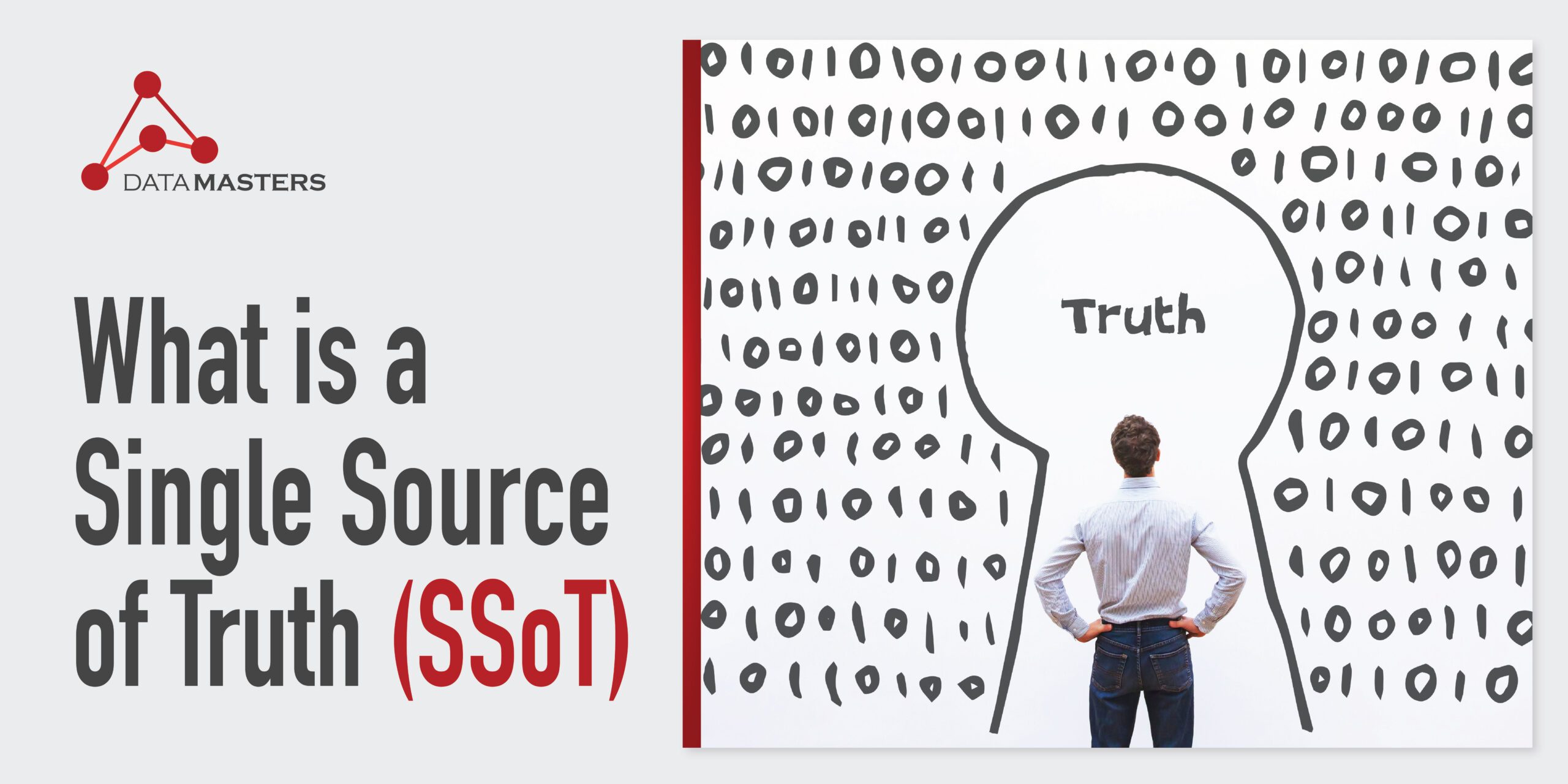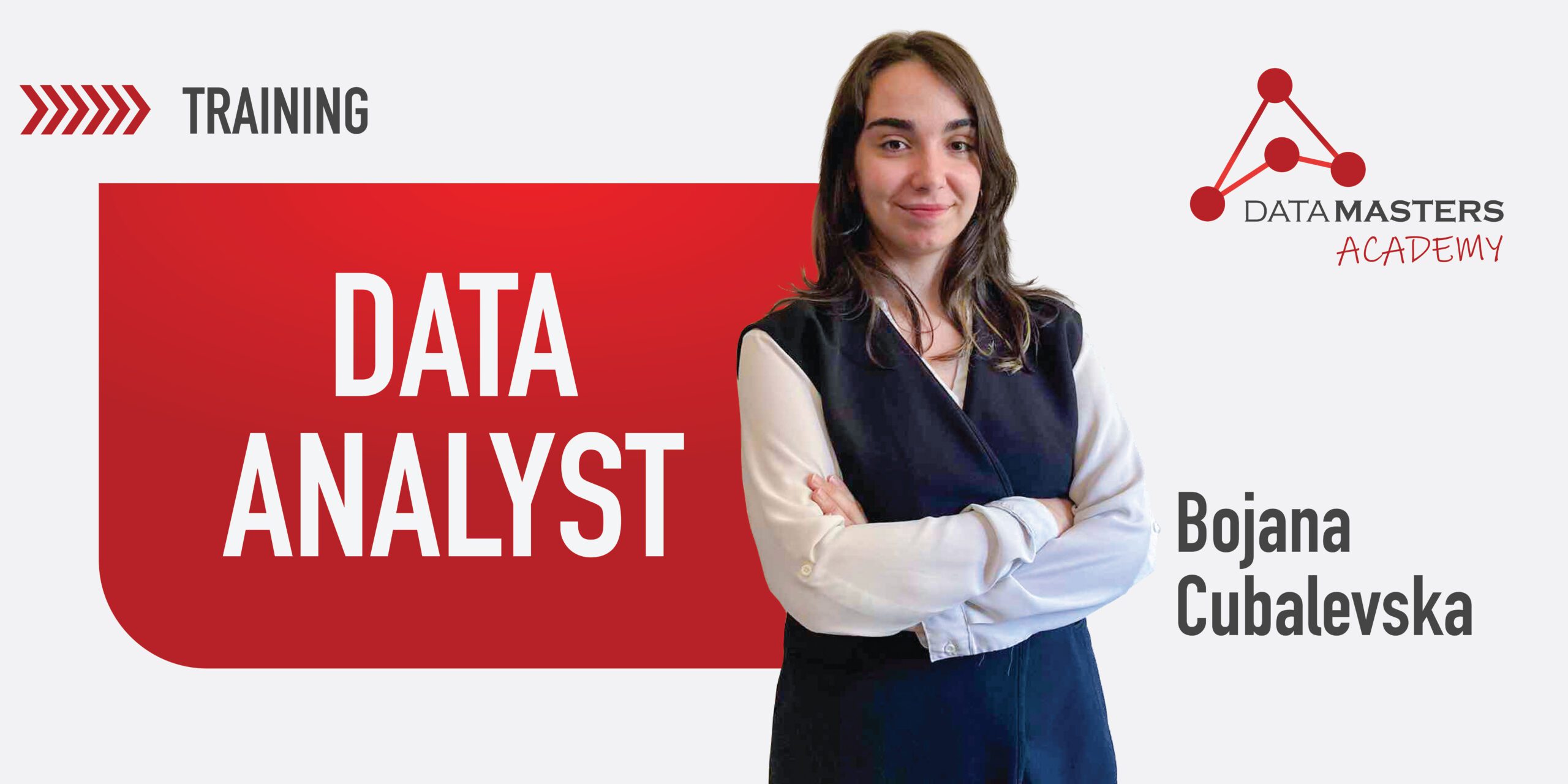We had the honor and privilege to speak with Aleksandra Pavleska Gjorgjijoska, Data Analyst at Makedonski Telekom, who was a participant in the Data Analytics for Business Decision Making training at the Data Masters Academy.
The long-term experience and fieldwork in the banking and telecommunications sector served as an excellent foundation for Aleksandra to expand her technical knowledge. As an economics major in the E-business field, Aleksandra states that a background in IT is not needed to complete this training.
Aleksandra shared her experience at the Data Masters Academy and talked about the technical aspects of the training in detail, as well as the importance of data in the decision-making process in any company.
Since you have experience in data analysis in both the banking and telecommunications sectors, can you compare your experience working with data in the banking sector versus the telecommunications sector?
The banking and telecommunications sectors are both industries that work with large amounts of structured and unstructured data gathered via various digital channels. Once this data has been processed and analyzed, important conclusions can be reached – mainly regarding customer behavior. These conclusions can help improve user experience and increase the efficiency of the established internal processes and practices in the company itself.
Because we are talking about two different industries, different types of analysis are made. However, for an analysis to be successful, it’s crucial to determine the exact goal we want to achieve before the data analysis process is performed. My initial experience with data processing and analysis was through Excel. Data processing is valuable for defining an appropriate „pattern“ regarding user behavior and experience.
You mentioned that you have been working with Excel for many years now. How did the knowledge you have gained from working with this tool help you with the training?
My knowledge of Excel helped me quite a bit, especially with learning Power BI and processing data using SQL.
The language used to create more complex formulas in Excel is DAX (Data Analysis Expressions), which is the same as Power BI. As a result, creating calculation columns and metrics was not an issue for me. Additionally, data visualization and dynamic manipulation are quite intuitive if you have previous experience working in Excel.
Regarding the similarities between Excel and SQL, both tools provide the ability to filter, sort, and export data with clearly defined rules (queries). However, the advantage SQL offers is that you can use it to process and export large datasets.
And how does the knowledge you obtained from the training help you in your job position at Makedonski Telekom?
Makedonski Telekom, as a company, is a leader in the digitalization process, and we continuously work on automating and improving our internal processes. More specifically, we are working on automating our reports using Power BI to enable insight into real-time data so that the decision-making process in the company can be faster and more efficient.
Unlike data processing and analysis in Excel, the tools showcased in the training allow you to upgrade the already-made analysis and access the newer data with just one click.
Do you think that the Macedonian business sector understands the need for advanced data analytics, and do trainings like the ones Data Masters offers contribute to speeding up the transition of companies and individuals using more efficient tools than Excel?
A large portion of Macedonian companies have already implemented the so-called ‘Data-driven culture’ because they treat the data itself as a “fixed asset.”
With the automation of data, the company’s management team has constant access to real-time data, without needing assistance from the employees. Additionally, by using more efficient tools than Excel, companies reduce the time it takes to process data, which is crucial for making decisions regarding strategic planning, identifying new growth opportunities, efficient resource allocation, and prompt risk identification.
The timely analysis of competitors’ data and industry trends enables businesses to stay competitive because they can create targeted and appropriate offers for a better user experience.
Aside from your previous knowledge of Excel and Power BI, what else helped you master the training modules the most?
The lecturers made the training highly interactive, and they used their expertise and various examples to present the contents of each module successfully and accurately. Also, they guided us through the entire learning process with questions and examples.
In addition, the practical exercises and tasks helped us a lot in tackling the training modules as well as the feedback the lecturers gave us for each exercise and task we covered.
Who is the training most suitable for, and what would you recommend to the people who are still hesitant to acquire new skills and knowledge?
I would like to emphasize once again that prior technical knowledge is not needed for this training. Moreover, I highly recommend this training to each individual who wants to acquire new skills and expand their knowledge in the data analysis field, regardless of whether they are or want to become business analysts, data analysts, data scientists, or something else.
With this training, participants acquire skills that they use later on to improve data-based decision-making processes or if they want to transform their careers.






